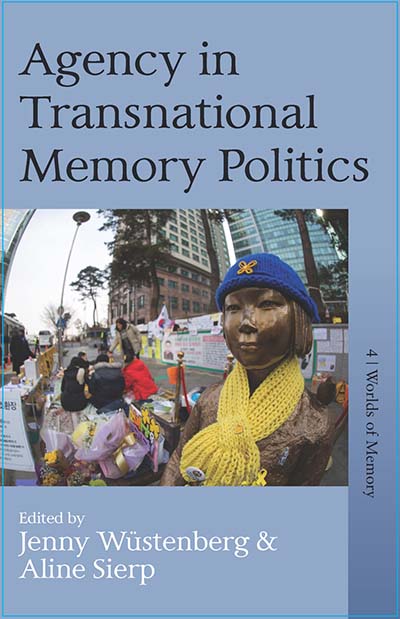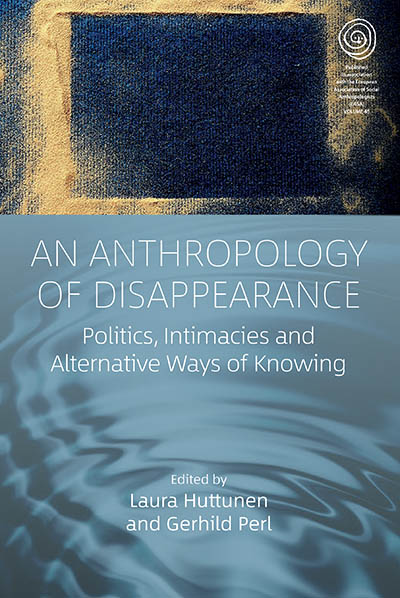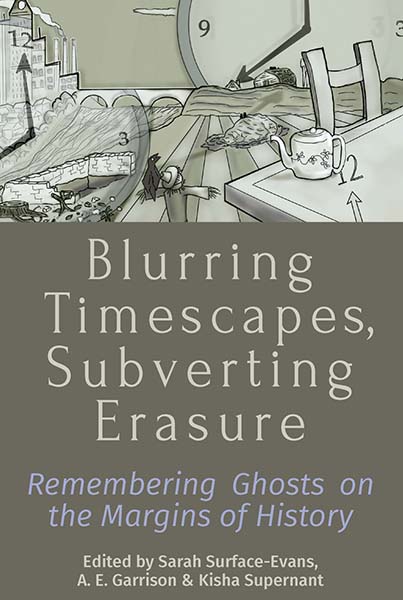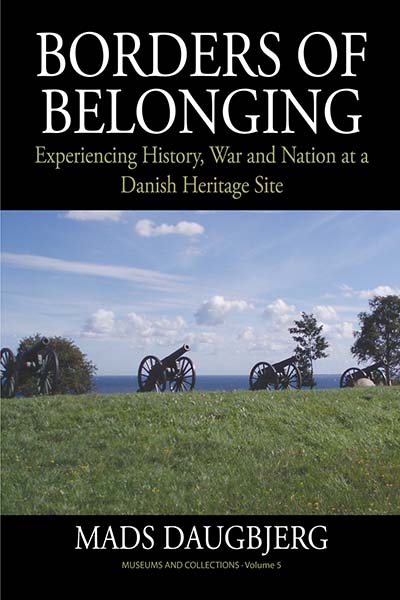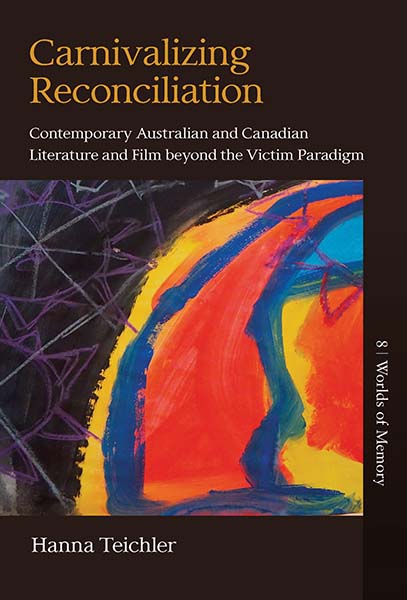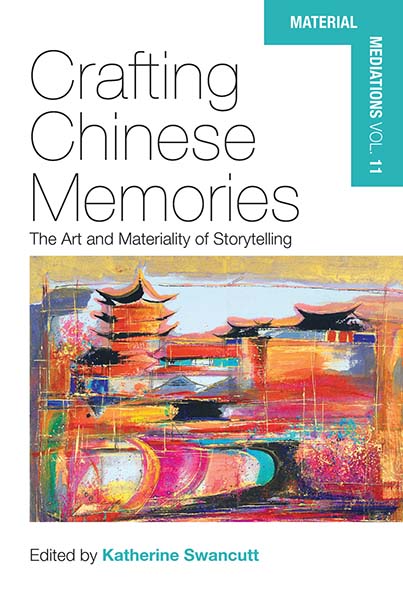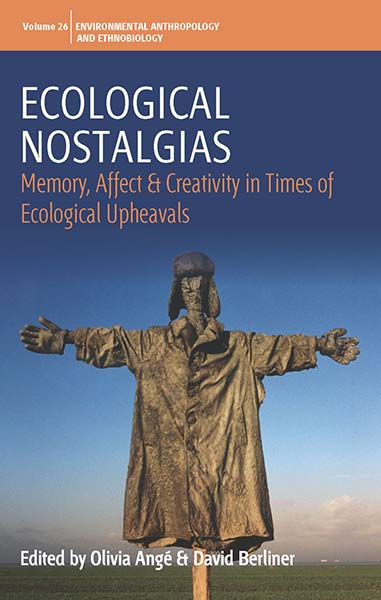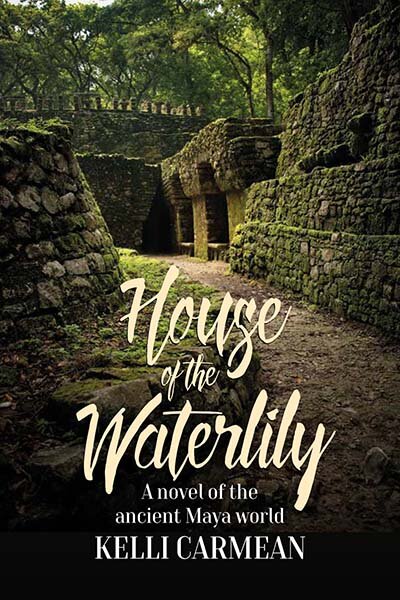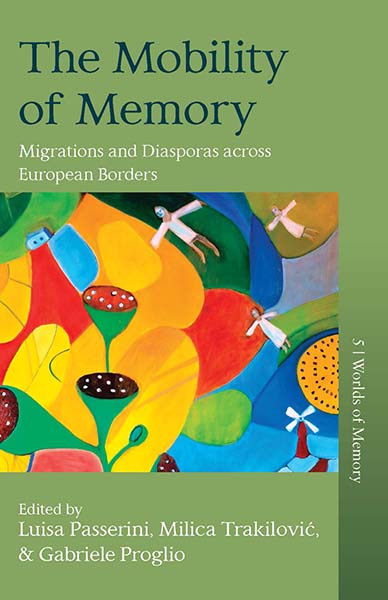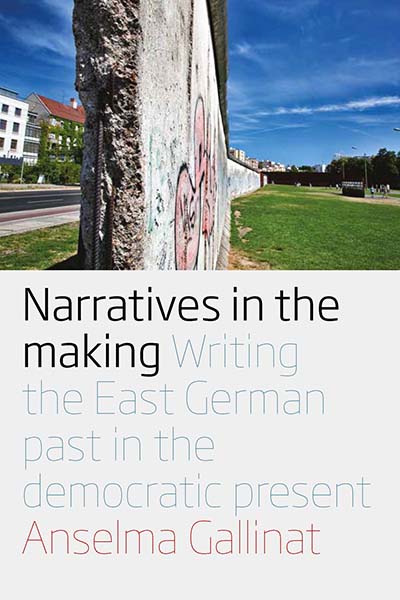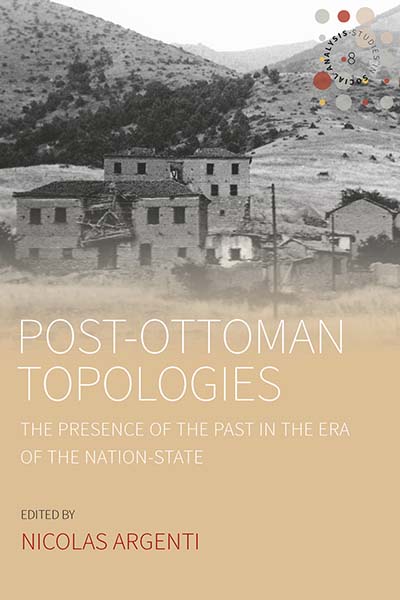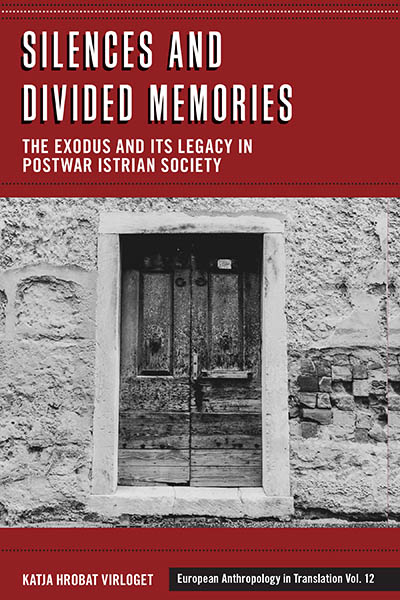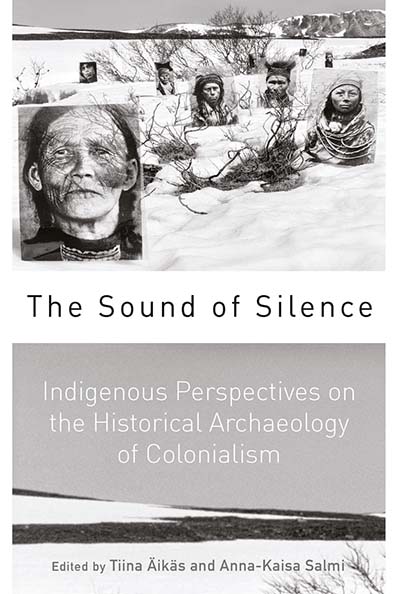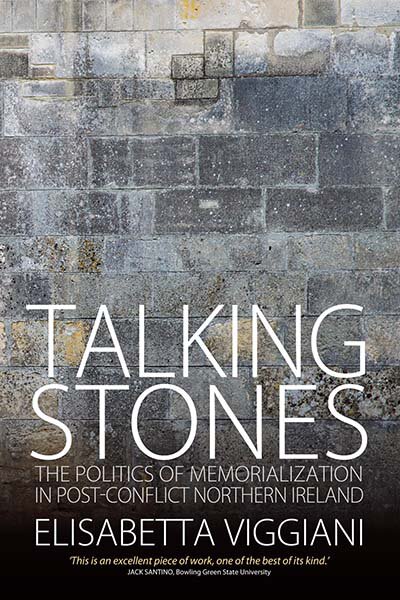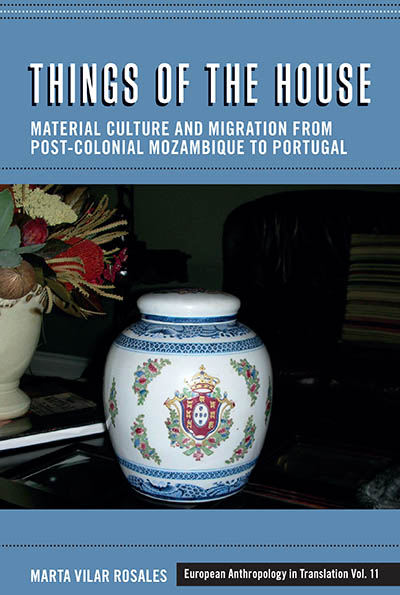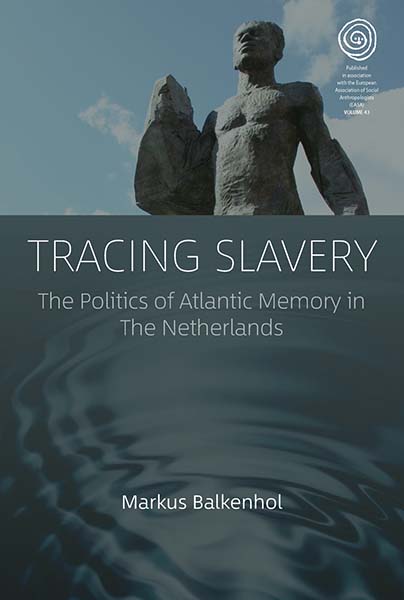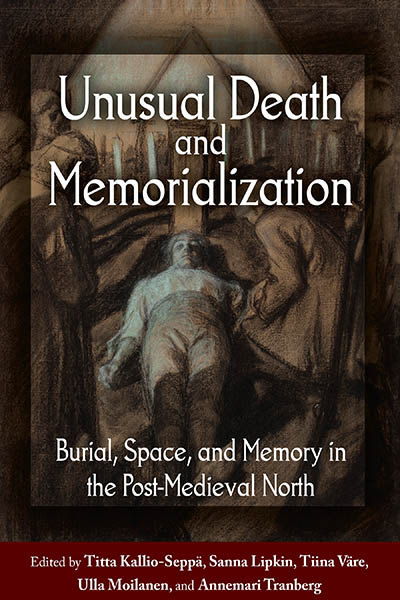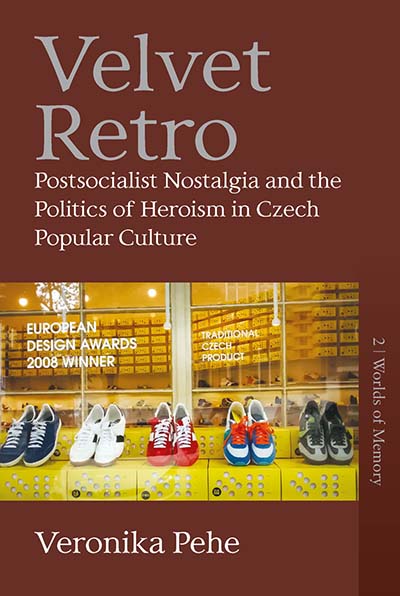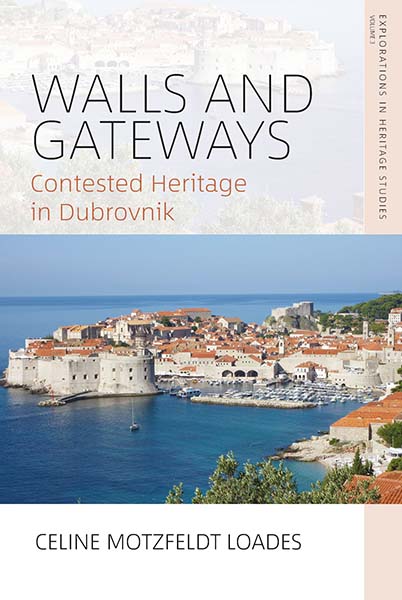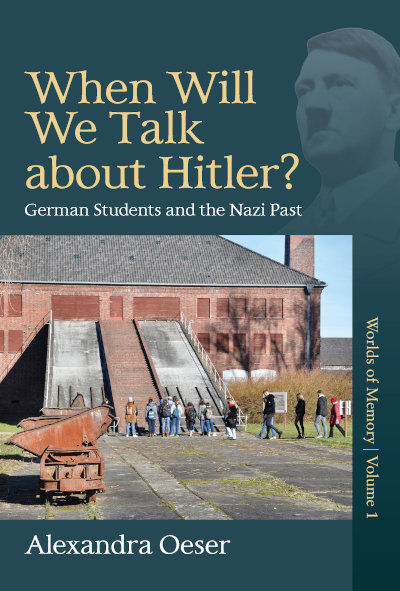Home -> Browse
-

Agency in Transnational Memory Politics
Wüstenberg, J. & Sierp, A. (eds)
The dynamics of transnational memory play a central role in modern politics, from postsocialist efforts at transitional justice to the global legacies of colonialism. Yet, the relatively young subfield of transnational memory studies remains underdeveloped and fractured across numerous disciplines, even as nascent, boundary-crossing theories on topics such as multi-vocal, traveling, or entangled remembrance suggest new ways of negotiating difficult political questions. This volume brings together theoretical and practical considerations to provide transnational memory scholars with an interdisciplinary investigation into agency—the “who” and the “how” of cross-border commemoration that motivates activists and fascinates observers.
Subjects: History (General) Sociology Memory Studies
-

An Anthropology of Disappearance
Politics, Intimacies and Alternative Ways of Knowing
Huttunen, L. & Perl, G. (eds)
All over the world, people disappear from their families, communities and the state’s bureaucratic gaze, as victims of oppressive regimes or while migrating along clandestine routes. This volume brings together scholars who engage ethnographically with such disappearances in various cultural, social and political contexts. It takes an anthropological perspective on questions about human life and death, absence and presence, rituals and mourning, liminality and structures, citizenship and personhood as well as agency and power. The chapters explore the political dimension of disappearances and address methodological, epistemological and ethical challenges of researching disappearances and the disappeared. The combination of disappearance through political violence, crime, voluntary disappearance and migration make this book a unique combination.
Subjects: Political and Economic Anthropology Refugee and Migration Studies Memory Studies
-

Blurring Timescapes, Subverting Erasure
Remembering Ghosts on the Margins of History
Surface-Evans, S., Garrison, A. E. & Supernant, K. (eds)
What happens when we blur time and allow ourselves to haunt or to become haunted by ghosts of the past? Drawing on archaeological, historical, and ethnographic data, Blurring Timescapes, Subverting Erasure demonstrates the value of conceiving of ghosts not just as metaphors, but as mechanisms for making the past more concrete and allowing the negative specters of enduring historical legacies, such as colonialism and capitalism, to be exorcised.
Subjects: Archaeology Anthropology (General) Memory Studies Heritage Studies
-

Borders of Belonging
Experiencing History, War and Nation at a Danish Heritage Site
Daugbjerg, M.
In an era cross-cut with various agendas and expressions of national belonging and global awareness, “the nation” as a collective reference point and experienced entity stands at the center of complex identity struggles. This book explores how such struggles unfold in practice at a highly symbolic battlefield site in the Danish/German borderland. Comprised of an ethnography of two profoundly different institutions – a conventional museum and an experience-based heritage center – it analyses the ways in which staff and visitors interfere with, relate to, and literally “make sense” of the war heritage and its national connotations. Borders of Belonging offers a comparative, in-depth analysis of the practices and negotiations through which history is made and manifested at two houses devoted to the interpretation of one event: the decisive battle of the 1864 war in which Otto von Bismarck, on his way to uniting the new German Empire, led the Prussian army to victory over the Danish. Working through his empirical material to engage with and challenge established theoretical positions in the study of museums, modernity, and tourism, Mads Daugbjerg demonstrates that national belonging is still a key cultural concern, even as it asserts itself in novel, muted, and increasingly experiential ways.
Subjects: Heritage Studies Travel and Tourism Museum Studies Memory Studies
Area: Northern Europe
-

Carnivalizing Reconciliation
Contemporary Australian and Canadian Literature and Film beyond the Victim Paradigm
Teichler, H.
Transitional justice and national inquiries may be the most established means for coming to terms with traumatic legacies, but it is in the more subtle social and cultural processes of “memory work” that the pitfalls and promises of reconciliation are laid bare. This book analyzes, within the realms of literature and film, recent Australian and Canadian attempts to reconcile with Indigenous populations in the wake of forced child removal. As Hanna Teichler demonstrates, their systematic emphasis on the subjectivity of the victim is problematic, reproducing simplistic narratives and identities defined by victimization. Such fictions of reconciliation venture beyond simplistic narratives and identities defined by victimization, offering new opportunities for confronting painful histories.
Subjects: Memory Studies Literary Studies Film and Television Studies
Areas: North America Asia-Pacific
-

Crafting Chinese Memories
The Art and Materiality of Storytelling
Swancutt, K. (ed)
Through an interdisciplinary conversation with contributors from social anthropology, religious studies, film studies, literary studies, cultural studies, and history, Crafting Chinese Memories is a novel book which addresses how works of art shape memories, and offers new ways of conceptualising storytelling, memory-making, art, and materiality. It explores the memories of artists, filmmakers, novelists, storytellers, and persons who come to terms with their own histories even as they reveal the social memories of watershed events in modern China.
Subjects: Anthropology (General) Memory Studies Cultural Studies (General)
Area: Asia
-

Ecological Nostalgias
Memory, Affect and Creativity in Times of Ecological Upheavals
Angé, O. & Berliner, D. (eds)
Introducing the study of econostalgias through a variety of rich ethnographic cases, this volume argues that a strictly human centered approach does not account for contemporary longings triggered by ecosystem upheavals. In this time of climate change, this book explores how nostalgia for fading ecologies unfolds into the interstitial spaces between the biological, the political and the social, regret and hope, the past, the present and the future.
Subjects: Anthropology (General) Environmental Studies (General) Cultural Studies (General) Memory Studies
-

House of the Waterlily
A Novel of the Ancient Maya World
Carmean, K.
Set in the Maya civilization’s Late Classic Period House of the Waterlily is a historical novel centered on Lady Winik, a young Maya royal. Through tribulations that mirror the political calamities of the Late Classic world, Winik’s personal story immerses the reader not only in her daily life, but also in the difficult decisions Maya men and women must have faced as they tried to navigate a rapidly changing world. Kelli Carmean’s novel brings to life a people and an era remote from our own, yet recognizably human all the same.
Subjects: Archaeology Literary Studies Memory Studies Anthropology (General)
Area: Latin America and the Caribbean
-

The Mobility of Memory
Migrations and Diasporas across European Borders
Passerini, L., Trakilović, M., & Proglio, G. (eds)
Migration is most concretely defined by the movement of human bodies, but it leaves indelible traces on everything from individual psychology to major social movements. Drawing on extensive field research, and with a special focus on Italy and the Netherlands, this interdisciplinary volume explores the interrelationship of migration and memory at scales both large and small, ranging across topics that include oral and visual forms of memory, archives, and artistic innovations. By engaging with the complex tensions between roots and routes, minds and bodies, The Mobility of Memory offers an incisive and empirically grounded perspective on a social phenomenon that continues to reshape both Europe and the world.
Subjects: Mobility Studies Refugee and Migration Studies Sociology Memory Studies
Area: Europe
-

Narratives in the Making
Writing the East German Past in the Democratic Present
Gallinat, A.
Despite the three decades that have passed since the fall of the Berlin Wall, the historical narrative of East Germany is hardly fixed in public memory, as German society continues to grapple with the legacies of the Cold War. This fascinating ethnography looks at two very different types of local institutions in one eastern German state that take divergent approaches to those legacies: while publicly funded organizations reliably cast the GDR as a dictatorship, a main regional newspaper offers a more ambivalent perspective colored by the experiences and concerns of its readers. As author Anselma Gallinat shows, such memory work—initially undertaken after fundamental regime change—inevitably shapes citizenship and democracy in the present.
Subjects: History: 20th Century to Present Anthropology (General) Memory Studies
Area: Germany
-

Post-Ottoman Topologies
The Presence of the Past in the Era of the Nation-State
Argenti, N. (ed)
How are historians and social scientists to understand the emergence, the multiplicity, and the mutability of collective memories of the Ottoman Empire in the political formations that succeeded it? With contributions focussing on several of the nation-states whose peoples once were united under the aegis of Ottoman suzerainty, this volume proposes new theoretical approaches to the experience and transmission of the past through time. Developing the concept of topology, contributors explore collective memories of Ottoman identity and post-Ottoman state formation in a contemporary epoch that, echoing late modernity, we might term “late nationalism”.
Subjects: Sociology Anthropology (General) Memory Studies
Areas: Southern Europe Middle East & Israel
-

Silences and Divided Memories
The Exodus and its Legacy in Post-War Istrian Society
Virloget, K. H.
The Istrian Peninsula, which is made up of modern-day Croatia, Slovenia, and Italy suffered from the so-called "Istrian exodus" after the Second World War. This book looks at this difficult, silenced past and shifts the usual focus from migrants to those who stayed behind and to the new immigrants who came to the “emptied” towns.The research, based on individual memories, deals with silences and competing national discourses, reasons to stay and leave, hybrid border ethnic identities, and the renewal of Istrian society and its new social relations. It is a self-critical reflection on an ignored chapter of national history, which, with an empathetic approach, allows the silence to speak.
Subjects: Anthropology (General) Refugee and Migration Studies Memory Studies
Areas: Southern Europe Central/Eastern Europe
-

The Sound of Silence
Indigenous Perspectives on the Historical Archaeology of Colonialism
Äikäs, T. & Salmi, A.-K. (eds)
Colonial encounters between indigenous peoples and European state powers are overarching themes in the historical archaeology of the modern era, and postcolonial historical archaeology has repeatedly emphasized the complex two-way nature of colonial encounters. This volume examines common trajectories in indigenous colonial histories, and explores new ways to understand cultural contact, hybridization and power relations between indigenous peoples and colonial powers from the indigenous point of view. By bringing together a wide geographical range and combining multiple sources such as oral histories, historical records, and contemporary discourses with archaeological data, the volume finds new multivocal interpretations of colonial histories.
Subjects: Archaeology Colonial History Memory Studies Anthropology (General)
-

Talking Stones
The Politics of Memorialization in Post-Conflict Northern Ireland
Viggiani, E.
If memory was simply about past events, public authorities would never put their ever-shrinking budgets at its service. Rather, memory is actually about the present moment, as Pierre Nora puts it: “Through the past, we venerate above all ourselves.” This book examines how collective memory and material culture are used to support present political and ideological needs in contemporary society. Using the memorialization of the Troubles in contemporary Northern Ireland as a case study, this book investigates how non-state, often proscribed, organizations have filled a societal vacuum in the creation of public memorials. In particular, these groups have sifted through the past to propose “official” collective narratives of national identification, historical legitimation, and moral justifications for violence.
Subjects: Memory Studies Heritage Studies Anthropology (General)
Area: Europe
-

Things of the House
Material Culture and Migration from Post-Colonial Mozambique to Portugal
Rosales, M. V.
Discussing multiple aspects of material culture and domestic consumption, this book tackles the relationship between the trajectories and biographies of people, families, houses and objects and how they intertwine and produce each other. Focusing on the life stories of a group of European and Catholic Brahmin Goan families of the colonial elite who left Mozambique after the country's independence in 1975, the book shows how material culture interferes with structuring dimensions of migratory experiences, in the management of family memories, ties and networks of belonging, as well as in the social dynamics of positioning, hierarchy and distinction.
Subjects: Anthropology (General) Refugee and Migration Studies Memory Studies
-

Tracing Slavery
The Politics of Atlantic Memory in The Netherlands
Balkenhol, M.
Looking at the ways in which the memory of slavery affects present-day relations in Amsterdam, this ethnographic account reveals a paradox: while there is growing official attention to the country’s slavery past (monuments, festivals, ritual occasions), many interlocutors showed little interest in the topic. Developing the notion of “trace” as a seminal notion to explore this paradox, this book follows the issue of slavery in everyday realities and offers a fine-grained ethnography of how people refer to this past – often in almost unconscious ways – and weave it into their perceptions of present-day issues.
Subjects: Memory Studies Anthropology (General) Heritage Studies
Area: Europe
-

Unusual Death and Memorialization
Burial, Space, and Memory in the Post-Medieval North
Kallio-Seppa, T., Lipkin, S., Väre, T., Moilanen, U. & Tranberg, A. (eds)
Most cultures and societies have their own customs and traditions of treating their dead. In the past, some deceased received a burial that deviated from tradition. The reasons for unusual burial could result from reasons such as outbreaks of epidemics or wars, or from premature births, distinctive social status, or disability. Authors present a selection of cases addressing the issue of unusual deaths, burials, or ways to remember the deceased. Chapters explore theoretical views related to social memory of death and memorializing the deceased and their resting places during modern period. The case studies introduce varied views on ‘otherness’ that are visible in burial customs and memorialization.
Subjects: Archaeology Anthropology (General) Memory Studies
-

Velvet Retro
Postsocialist Nostalgia and the Politics of Heroism in Czech Popular Culture
Pehe, V.
Scholars of state socialism have frequently invoked “nostalgia” to identify an uncritical longing for the utopian ambitions and lived experience of the former Eastern Bloc. However, this concept seems insufficient to describe memory cultures in the Czech Republic and other contexts in which a “retro” fascination with the past has proven compatible with a steadfast critique of the state socialist era. This innovative study locates a distinctively retro aesthetic in Czech literature, film, and other cultural forms, enriching our understanding of not only the nation’s memory culture, but also the ways in which popular culture can structure collective memory.
Subjects: Cultural Studies (General) History: 20th Century to Present Film and Television Studies Memory Studies
Area: Central/Eastern Europe
-

Walls and Gateways
Contested Heritage in Dubrovnik
Loades, C. M.
In 1979 Dubrovnik was declared a UNESCO World Heritage site, which had consequences for the city's broader cultural heritage. Walls and Gateways explores how this status intersects with the reconstruction and consolidation of identities and locality in the city’s post-war context. It analyses how representations, perceptions and uses of Dubrovnik’s heritage are embedded in particular cultural practices, materiality and place. In Dubrovnik’s post-war context, different uses of cultural memory and heritage provoke both dissonance and unity, shape practices and mobilize cultural and political activism.
Subjects: Heritage Studies Anthropology (General) Memory Studies
Area: Central/Eastern Europe
-

When Will We Talk About Hitler?
German Students and the Nazi Past
Oeser, A.
For more than half a century, discourses on the Nazi past have powerfully shaped German social and cultural policy. Specifically, an institutional determination not to forget has expressed a “duty of remembrance” through commemorative activities and educational curricula. But as the horrors of the Third Reich retreat ever further from living memory, what do new generations of Germans actually think about this past? Combining observation, interviews, and archival research, this book provides a rich survey of the perspectives and experiences of German adolescents from diverse backgrounds, revealing the extent to which social, economic, and cultural factors have conditioned how they view representations of Germany’s complex history.
Subjects: History (General) Educational Studies Anthropology (General) Memory Studies
Area: Germany


